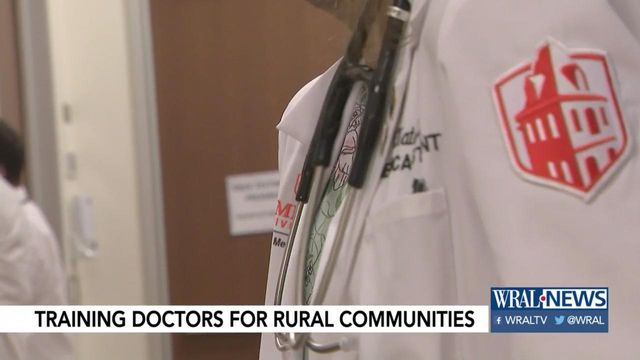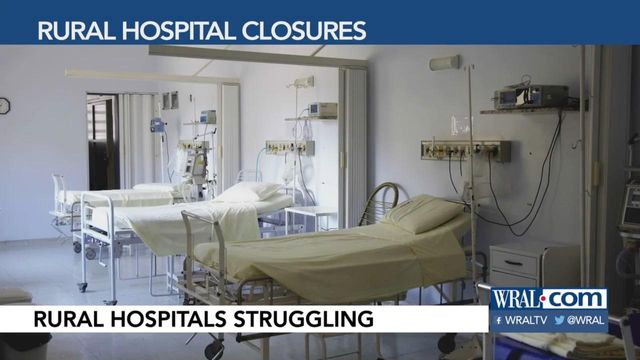Campbell medical school trying to fill gaps in rural health care
Going to school in Harnett County can provide quite a culture shock for students from big cities.
"Truthfully speaking, coming from Long Island, New York -- it's a big place," said Ryan Arias, a medical student from New York City.
He knew he would be entering a different world when he applied to Campbell University's School of Osteopathic Medicine. Arias wanted to study in a rural area in hopes of eventually practicing medicine where he feels there is a great need. Right now only 12% of the country's primary-care physicians work in rural areas.
"When you go into patients' rooms and you see that they have complications of very curable diseases, it strikes you as almost depressing in a way because you know from your training that they could be a lot better off then they are right now," Arias said.
Campbell medical students like Arias are hoping to be part of the solution.
"Our mission is serving the rural and underserved in North Carolina and in the Southeast United States," said Dr. David Tolentino, who is the associate dean for clinical affairs at the school.
Campbell's medical school, which just graduated its third class for a total of 453 doctors, is focusing on exposing students to the area around campus, starting with Harnett County and moving out from there.
"We have clinical campuses in Lumberton, in Fayetteville in Goldsboro, Salsbury," Tolentino said.
The relatively new medical school is borrowing a formula from Campbell's College of Pharmacy and Health Sciences, which has been sending students to rural parts of the state since 1986.
"A lot of our students are excited about that opportunity and they want to go and they want to make a difference," said Dr. Tina Thornhill, vice chairwoman for experiential and professional education at Campbell's Pharmacy and Health Sciences school.
Recruiting doctors for these areas can be a challenge, especially with large hospitals like Duke, UNC and Wake Med right down the road. Right now about 35% of Campbell's medical school graduates have stayed in North Carolina to work. And 80% of those new doctors are working in traditionally underserved areas of the state.
"I do know, as far as medical professionals go, there is a draw to larger tertiary centers because you have more resources," said Arias.
But Arias wants to have a larger personal impact on his patients and he feels he can accomplish that in a smaller town.
"It doesn't matter if it's one person a day, one person a week, or one person a year as long as I make an impact in a good way," he said.











